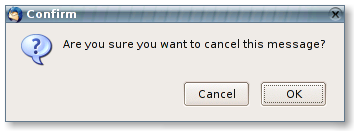Les rennes en rose
Some eggcorns seem to transcend languages. Or rather, some idioms seem to undergo eggcornification in several languages at once. In English, scapegoat has been turned into escape goat and scrapegoat. As for the French equivalent, bouc émissaire has at least four eggcorn versions.
The extremely common eggcorn rein»reign has a French cousin, too. Except that in French, people don’t take the reigns, but the reindeers of power.
According to my estimate, prendre les rennes de … amounts to over 10% of the instances where standard French would have required rênes.
J’ai déjà fait allusion à cela : certaines locutions semblent plus enclines que d’autres à se laisser transformer en poteaux roses. Et le phénomène peut transcender les frontières linguistiques. Ainsi, le pauvre bouc émissaire pointe le nez déguisé en bouquet misère, bouquet mystère, bouc et misère, bouc et mystère et ainsi de suite. Mais son homologue anglais n’est pas mieux loti: pour scapegoat, la petite tribu des eggcornologues a déjà relevé escape goat et scrapegoat.
Quand une locution a un équivalent dans une autre langue, il est sensé de chercher des poteaux roses équivalents. D’autant plus que parfois, dans chaque langue, il existe toute une flopée de paronymes aux racines et étymologies apparentées.
Un « eggcorn » particulièrement fréquent, au point qu’on peut le considérer comme presque acceptable en langue standard, est la substitution de reign(s) (« règne(s) ») pour rein(s) (« rêne(s) ») : dans l’ordre décroissant d’acceptabilité les locutions free reign, reign in et take the reigns of power sont extrêmement courantes. Au point que toutes les trois se retrouvent sur les pages de journaux de qualité (dont le Guardian).
Le français, de son côté, connaît prendre les rênes du pouvoir (ou d’autre chose d’ailleurs), littéralement la même expression qu’en anglais. Comme substitut, règnes, phonétiquement trop éloigné de rênes, ne convient guère. Mais que trouve–t-on dans dans les petits billets de mon ami Laurent Gloaguen ?
- « La charmante Emmanuelle Skyvington, journaliste de son état, coupable d’un dossier grand-public sur les blogues dans Télérama, mettant en vedette, de façon indue, un blogueur prétentieux et imbu de lui-même, vient de prendre les rennes du blogue de l’hebdomadaire sus-cité. » (lien)
Et il est loin d’être le seul … quelques centaines d’auteurs de site web ont fait pareil. Et pas n’importe qui :
- « En attendant de prendre les rennes de l’Europe en 2008, l’Anglais pourrait gonfler son record personnel en 2006, Ian Woosnam n’écartant pas l’idée de sélectionner Faldo si celui-ci présente un niveau de jeu lui permettant de rivaliser avec ses adversaires américains. » (Radio France)
- « Fin prêt à prendre les rennes du pouvoir, le nouveau chef libéral a d’ailleurs déjà promis un poste de premier plan au ministre Ralph Goodale, afin de contrer le sentiment d’aliénation de l’Ouest canadien. » (Radio Canada)
- « Le rôle de la région et de la communauté internationale doit être renforcé par la volonté des Haïtiens eux-mêmes de prendre les rennes du développement. » (ONU)
- « Darius estime alors qu’il est le seul capable de prendre les rennes de l’émission mais le succès lui monte un peu à la tête et il ne tarde pas à se prendre pour Néron. » (ifrance)
Nous sommes à un taux de plus de 10% de poteaux roses, selon l’estimation livrée par les moteurs de recherche.
L’ère équestre est derrière nous, et les mammifères ruminants de la famille des Cervidés vivant dans les régions froides de l’hémisphère nord (je copie sur le TLFi) ont pris le dessus.
Ce poteau rose a de beaux jours devant lui.
Related posts: Les poteaux roses, c'est auripilant, ... où l'on découvre les poteaux roses, ... et où l'on les découvre vraiment, Eggcorns and ditchwater, Appel aux francophones, Cinderella, vair or verre?, Je blogue et j'ai les boules
Technorati (tags): eggcorns, français, French, langue, lexique, linguistics, orthographe, poteaux roses


